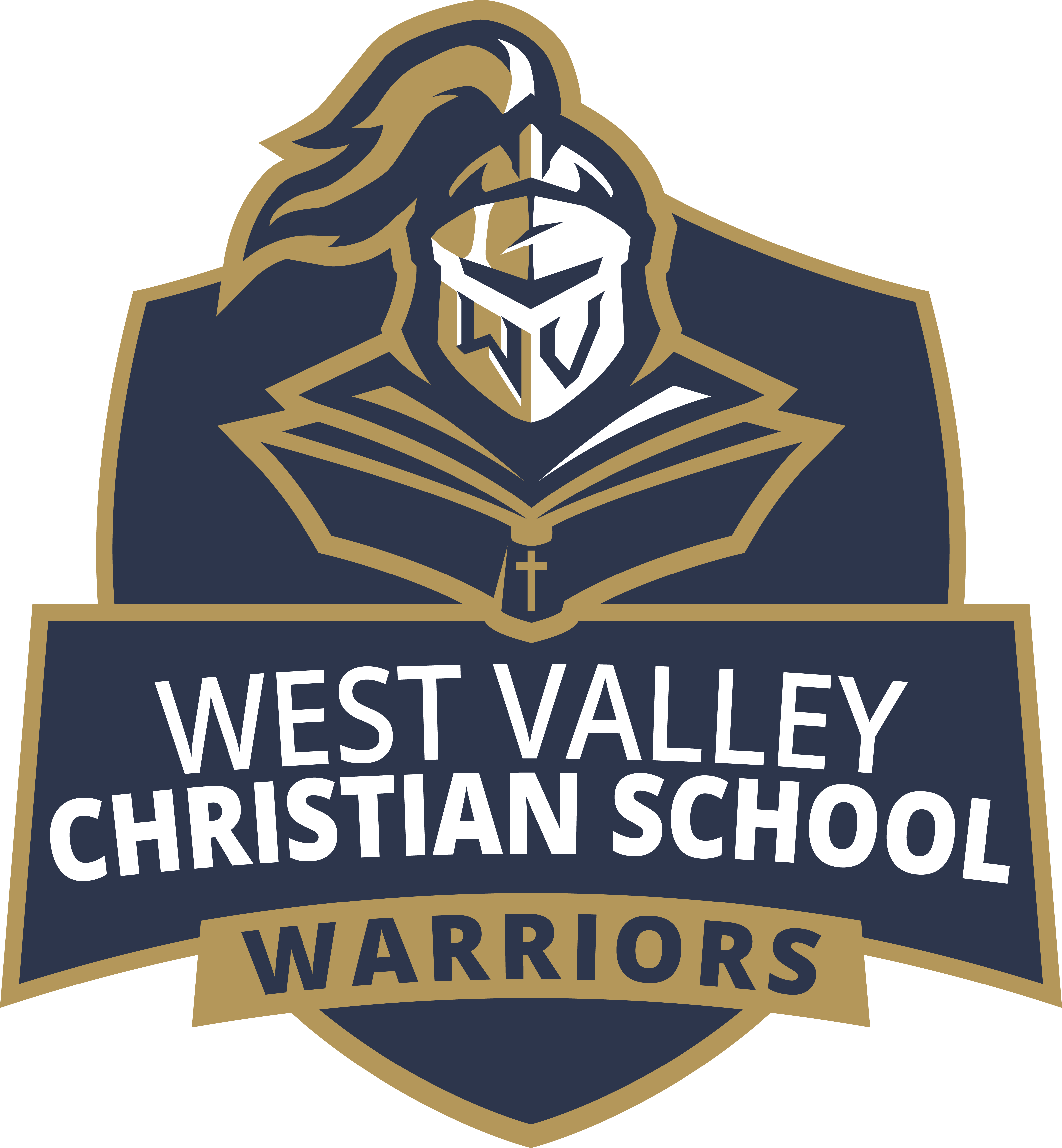At West Valley Christian, we know what students need to learn and thrive in today’s world. We combine that with a foundation of Biblical truth that is integrated into every aspect of our school to deliver academic excellence and equip students for a life of impact.
A West Valley Christian Education
Distinctly Christian Education

Expected Student Outcomes
Academic Thinking
- AT1: Prepared in all academic disciplines, demonstrating proficiency in reading, writing, and mathematics. Luke 12-48
- AT2: Describe how the Bible applies to people, events, and movements in history (including church history) and the cultures of other people and places. Job 12:23
- AT3: Demonstrate an appreciation for and understanding of the natural environment. art, and music by practicing responsible stewardship of God’s creation. Psalm 12:1-7 | Genesis 1:28-29
- AT4: Understand and clearly articulate the complimentary relationship between science and the Bible. Colossians 1:16
- AT5: Responsibly use resources including technology to find, analyze, and evaluate information. Matthew 25:14-30
- AT6: Attain the skills to question, solve problems, and make wise decisions. 2 Timothy 3:16-17
Spiritual Formation
- SF1: Commit to a personal relationship with Jesus Christ. John 3:16
- SF2: Identify how to carry out the Great Commission locally and around the world in a culturally sensitive manner. Matthew 28
-
SF2a. Demonstrate how to lead someone to Christ.
-
SF2b. Contribute to the spiritual development of peers.
-
- SF3: Know, understand, and apply God’s Word in daily life,
- SF3a: Demonstrate a woods Word is ed by God’s Word.
- SF3b: Understand that God’s Word is relevant to the concerns of everyday it lite situations vorthy source to determine responses to life situations.
- SF4: Pursue a life of faith rotherly kinds and telf-control, perseverance, godliness, brotherly kindness, and love.
- SF5: Understand how to treat their bodies as the temple of the Holy Spirit. 1 Corinthians 6:19-20
- SF6: Recognize the value of being involved in a church community, serving Cod and others. Hebrews 10:25 | 1 Peter 4:10
Biblical Worldview
- BW1: Recognize Truth is Jesus Christ, the basis for beliefs and values. John 14:6
- BWia. Recognize that the Bible is true (infallible Word of God).
- BW1b. Proficiently read and understand the Bible independently.
- BW2: Formulate and defend their Christian worldview while having a basic understanding of opposing worldview. 1 Peter 3:15
- BW2a: Demonstrate to peers that the Bible is true.
- BW2b: Defend accuracy of the Bible accounts of the birth, Deity, death, and resurrection to peers.
- BW2c: Provide reasonable responses to hpular objections to their faith (e.g. Evolution vs. Creation, authorit science vs. authority of Scripture)
- BW2d. Identify and refute the lies of secular narrative.
- BW3: Recognize the importance of lifelong learning-seeking and communicating God’s truths. Proverbs 9:9
- BW4. Identify the worth of every human being as created in the image of God. Genesis 1:27
- BW5: Identify the principles of healthy, biblical family living with the intent to employ these principles. Genesis 2:24 | Ephesians 5:21-33
- BW6: Apply stewardship concepts to their life situation (i.e. finances, time, gifts, talents). 1 Peter 4:10
Assessments
At WVCS we use several assessments to help pinpoint student learning needs. Most assessments are given three times a year (fall, winter, and spring). The purpose of all testing is to inform instruction and track each student’s academic progress as we partner with you in your child’s education.
How We Assess
-
Dynamic Indicators of Basic Literacy Skills (DIBELS) is given to students K-8 as a quick measure for grade-level reading skills.
-
The Renaissance Star Assessment (grades 2-8) provides a zone of proximal development (ZPD) for your child’s reading level. Basically, the ZPD represents a book-level range just right for your child’s reading skills. Research has shown that students who read books in their ZPD level for at least 35 minutes a day maximize their literacy growth. See the Accelerated Reader page for more information.
-
MAP Growth tests are given for math, reading, and language and are designed differently from than other assessments. This adaptive test is designed to discern what students know and what they don’t know, leaving teachers with the “sweet spot” for instruction—what each student is READY TO LEARN (RIT). MAP results are given in the form of RIT scores.
For more information about MAP Growth, check out the resources below.
- Optional practice activities can be found at: https://studentresources.nwea.org/
- Username and password are the same: grow
- NWEA has excellent parent resources and information on the Family Toolkit page.
As we partner together, contact your child’s teacher if you have any questions or concerns.
Accelerated Reader
WVCS utilizes Renaissance Learning’s Accelerated (AR) Program to support students’ reading achievement. Students in second through eighth grades take the Star Assessment to pinpoint their “just-right” reading level, called the zone of proximal development (ZPD). Students are encouraged to read books within their zone and take AR quizzes to verify reading comprehension.
Parents can check student progress toward goals on Home Connect.
Need to find a book in your child’s ZPD? AR Bookfinder is a great resource for finding books or determining the level of a book you already have.
Renaissance also provides helpful strategies for parents who want to foster successful reading skills.
IXL
WVCS encourages students to learn and grow as Jesus did in wisdom, knowledge and in favor with God and man. One way we do that is providing IXL for extra practice in math and English Language Arts (ELA). Teachers may use IXL as review, reteaching, extra practice, or enrichment. The IXL platform allows students to work at their readiness levels in ELA or math skills.
Check with your child’s teacher if you need login information.
Students maximize their learning with IXL.


